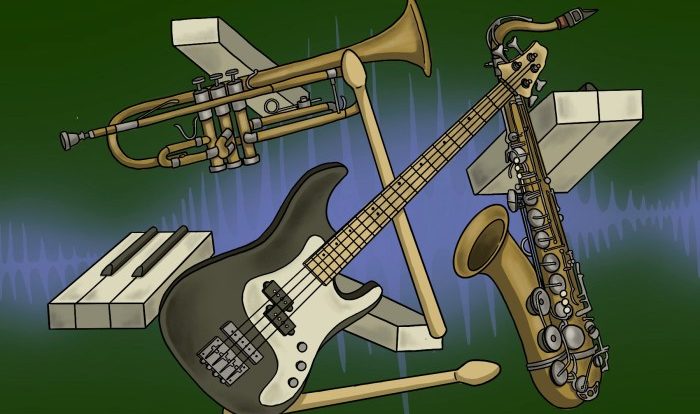Welcome to the exhilarating world of match the song to the artist quizzes, where your musical knowledge will be put to the ultimate test! Embark on a journey of melodies and names as you navigate through a series of questions designed to challenge your music IQ.
From classic rock anthems to contemporary pop hits, this quiz covers a wide range of genres and eras, ensuring an engaging experience for music lovers of all stripes.
Quiz Content
Designing engaging quiz questions that test participants’ musical knowledge requires a balance between challenge and accessibility, ensuring the quiz appeals to a wider audience.
Effective questions should showcase different genres and eras, providing a diverse range of songs to match with artists. Consider incorporating:
Question Types
- Lyric-based questions:Provide a short excerpt from a song and ask participants to identify the artist.
- Instrumental recognition:Play a brief instrumental clip and have participants guess the artist or song title.
- Genre identification:Present a song and ask participants to determine the musical genre it belongs to.
- Artist discography:List several songs and ask participants to match them with the correct artist.
- Year of release:Provide a song and ask participants to identify the year it was released.
User Experience

An intuitive and user-friendly interface is crucial for enhancing the overall user experience of the quiz. Participants should be able to navigate the quiz effortlessly, without encountering any obstacles or confusion.
Clear instructions and intuitive navigation should be provided at the beginning of the quiz, guiding participants through the rules and gameplay. Visual cues, such as progress bars or color-coding, can help participants track their progress and stay engaged throughout the quiz.
Intuitive Navigation, Match the song to the artist quiz
The quiz should feature a well-structured layout with clear navigation elements. Buttons, links, and other interactive elements should be easily identifiable and responsive, allowing participants to move through the quiz seamlessly.
- Provide clear and concise instructions for each section of the quiz.
- Use consistent button designs and placement throughout the quiz.
- Consider using breadcrumbs or a progress bar to indicate the participant’s current position within the quiz.
Progress Tracking
Providing visual cues and feedback on the participant’s progress can enhance their motivation and engagement. Progress bars, score updates, or completion percentages can help participants stay informed and track their performance.
- Display a progress bar or percentage indicator to show the participant how much of the quiz they have completed.
- Provide feedback on correct and incorrect answers, allowing participants to learn from their mistakes.
li>Consider offering a summary of the participant’s performance at the end of the quiz.
Visual Cues
Visual cues can make the quiz more engaging and enjoyable for participants. Using colors, images, or animations can help break up the monotony of text-based questions and provide visual stimulation.
- Use color-coding to differentiate between different types of questions or answer choices.
- Incorporate images or animations to illustrate questions or provide additional context.
- Consider using sound effects or background music to create a more immersive experience.
Scoring and Evaluation
Assessing quiz results requires a well-defined scoring system that considers accuracy, speed, and potential bonus points. Different scoring methods cater to various skill levels and competition formats.
Scoring Methods
- Percentage Accuracy:Calculates the percentage of correct answers out of the total number of questions. Suitable for quizzes with objective questions.
- Timed Accuracy:Similar to percentage accuracy, but also considers the time taken to answer each question. Rewards quick and accurate responses.
- Bonus Points:Awards additional points for answering questions within a certain time limit or for providing particularly insightful answers.
Evaluation Strategies
Evaluating participants’ performance involves analyzing their scores and providing meaningful feedback.
- Comparative Analysis:Compares participants’ scores to determine relative performance and identify areas for improvement.
- Individualized Feedback:Provides personalized feedback to each participant, highlighting strengths and weaknesses, and offering suggestions for improvement.
- Benchmarking:Compares participants’ scores to established benchmarks or industry standards to assess their proficiency.
Quiz Format and Structure: Match The Song To The Artist Quiz
The format of a quiz can greatly influence its effectiveness and user experience. Let’s explore the different options and their suitability for a “match the song to the artist” quiz.
Multiple Choice
Multiple choice questions present users with a list of possible answers from which they must select the correct one. This format is straightforward and easy to implement, but it can limit the user’s response options and may not always accurately assess their knowledge.
Open-Ended
Open-ended questions require users to provide their own answers without any predefined options. This format allows for a more comprehensive evaluation of the user’s knowledge, but it can be time-consuming to grade and may lead to inconsistent scoring.
Interactive Games
Interactive games offer a more engaging and gamified approach to quizzes. They may involve drag-and-drop, matching, or puzzle-solving elements. While these games can be entertaining, they may require more complex design and implementation, and they may not always be suitable for all audiences.
Recommended Structure
For a “match the song to the artist” quiz, a structured approach can enhance the user experience. Consider the following recommendations:
- Start with easier questions:Begin with familiar songs and artists to build confidence and encourage engagement.
- Increase difficulty gradually:As the quiz progresses, introduce more challenging questions to test the user’s knowledge.
- Provide immediate feedback:After each question, provide feedback to the user indicating whether their answer is correct or incorrect.
- Offer hints or help:If desired, include hints or help options to assist users with more difficult questions.
- Set a time limit (optional):Adding a time limit can create a sense of urgency and encourage users to focus.
Educational Value

Music appreciation and knowledge quizzes offer a valuable educational tool for music enthusiasts and students alike. These quizzes provide a fun and interactive way to reinforce learning, promote musical exploration, and foster a deeper understanding of music history.
By testing their knowledge of various songs and artists, quizzes help learners retain information more effectively. The act of recalling facts and making connections between different musical elements strengthens neural pathways, improving memory and comprehension.
Integration into Music Education
Music appreciation and knowledge quizzes can be seamlessly integrated into music education curricula at various levels.
- In introductory music classes, quizzes can introduce students to different genres, instruments, and musical concepts.
- For intermediate learners, quizzes can delve deeper into music theory, composition, and performance techniques.
- Advanced students can use quizzes to explore specific composers, historical periods, and musical styles.
Supplementary Resources
Beyond formal education, quizzes can also serve as valuable supplementary resources for self-directed learners and music enthusiasts.
- Online quizzes allow individuals to test their knowledge at their own pace and convenience.
- Quizzes can be used to supplement music lessons or workshops, providing additional practice and reinforcement.
- For music lovers, quizzes can be a fun way to expand their musical horizons and discover new artists and genres.
Social and Community Aspects
Quizzes can facilitate social interaction among music enthusiasts by providing a platform for them to connect, share their knowledge, and engage in friendly competition. Leaderboards and rankings encourage participants to strive for excellence and track their progress, fostering a sense of camaraderie and motivation.
Discussion forums allow users to exchange ideas, ask questions, and engage in meaningful discussions about their favorite music.
Team-building and Educational Purposes
Quizzes can be effectively used for team-building within music clubs or organizations. By dividing participants into teams and assigning them a set of music-related questions, quizzes encourage collaboration, communication, and problem-solving. This can help strengthen team dynamics and foster a sense of unity.
Additionally, quizzes can serve as valuable educational tools, helping participants expand their musical knowledge and deepen their appreciation for different genres and artists.
Essential Questionnaire
How do I play the match the song to the artist quiz?
The quiz presents a series of songs and a list of artists. Your task is to correctly match each song to its corresponding artist.
What is the scoring system for the quiz?
Each correct answer earns you points. The scoring system is designed to reward accuracy and speed, with bonus points awarded for particularly quick responses.
Can I share my quiz results with friends?
Yes, most quizzes allow you to share your results on social media or via email, enabling you to challenge your friends and compare your musical knowledge.
